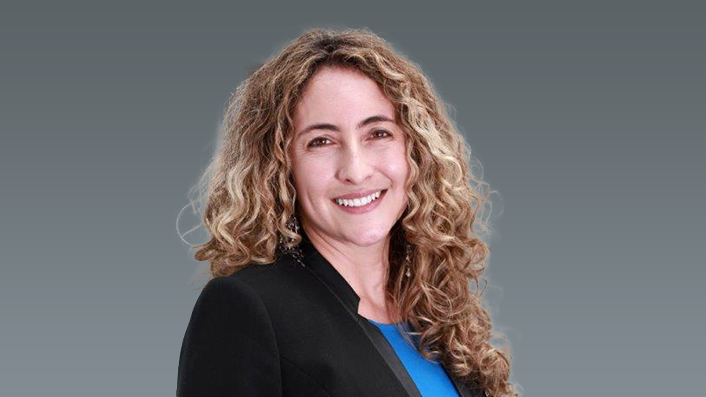U of A researcher believes people of all abilities deserve to enjoy play
Shirley Wilfong-Pritchard - 7 February 2024

Adriana Ríos Rincón is an assistant professor in the Department of Occupational Therapy, Faculty of Rehabilitation Medicine at the University of Alberta, where she completed her PhD in rehabilitation science and a postdoctoral fellowship.
While living in Colombia, Ríos Rincón completed her BSc in occupational therapy at Universidad Nacional de Colombia, earned a specialist credential in bioengineering at Universidad Distrital Francisco José de Caldas and an MSc in biomedical sciences at Universidad de los Andes.
We caught up with Ríos Rincón to learn more about her and her research.
What is your area of research and why is it important to you?
I focus on the pivotal role of assistive and digital technologies in enhancing the functioning, capacity and participation of individuals with motor or cognitive limitations. Specifically, I explore how technology facilitates health and well-being through engagement in play activities. I aim to deepen our comprehension of how technology can support individuals with disabilities, foster inclusivity and enrich their lives through play experiences.
I strongly believe everyone deserves the chance to play and enjoy its benefits. Play is a basic human need that brings feelings of joy and freedom. Sadly, many people with physical or cognitive challenges can't easily access play. That's where technology comes in — it helps break down these barriers and makes play possible for everyone.
My research also looks into how digital technologies can help monitor and manage changes in people's physical and mental abilities. I imagine a future where homes are equipped with smart technologies that help people with disabilities and older adults live independently and safely. By exploring these innovations, I hope to contribute to creating environments that improve the lives of people with physical or cognitive challenges.
What is the most rewarding aspect of your work?
Witnessing firsthand the transformative impact of my research is incredibly gratifying. Through interviews, I have observed how participation in my studies introduces joy and playfulness into the lives of individuals with disabilities. Let me share a touching story: A mother of a child with serious motor difficulties once told us that our technology helped her child play joyfully for the first time. Likewise, a caregiver of an older adult with dementia shared how our intervention allowed their loved one to play a computer game and find joy in it. This is a big deal, especially considering how tough it can be for older adults with dementia to stay focused and involved in activities.
What do you find most challenging about your work?
The primary challenge in my work stems from its applied nature, which necessitates conducting research in real-world settings. Most of my studies unfold in participants' natural environments, such as their homes, schools or community organizations. This introduces complexities that require ongoing collaboration with the community, substantial time to cultivate trust, and meticulous co-ordination efforts.
Where do you hope your research will be in five to 10 years?
I want to keep working on making play more accessible for people with disabilities. I think that cutting-edge technologies such as artificial intelligence and sensors bring enormous opportunities to support engagement in play. Through my research, I've begun integrating these innovations, foreseeing a future where computer games tailored to older adults with dementia adapt in real time, enabling prolonged play and benefit from practising their cognitive skills in a playful way. Additionally, I'm actively developing a robot designed to facilitate free play for children with cerebral palsy. My vision is that in a decade, numerous children will have experienced the joy of play, thanks to the assistance provided by this innovative robot.
What’s something your students or colleagues might be surprised to learn about you?
Something that may surprise my students or colleagues is that Antonio Miguel Cruz (an associate professor in the same department) is my husband. We met while working at a university in Colombia. Our professional collaboration on various projects, with him focusing on the technical aspects as an engineer and me focusing on the health component from an occupational therapy perspective, deepened our understanding of each other. Eventually, our collaboration evolved into a personal relationship, leading to marriage. Interestingly, the robot mentioned in a previous question is a joint venture we are developing together.
Another surprising aspect about me is my passion for scuba diving. I find immense joy in exploring the underwater world and cherish every opportunity to witness the beauty of marine life beneath the surface.
What’s the No. 1 piece of advice you give your graduate students?
The primary advice I offer to my graduate students, especially those interested in designing technologies or interventions in rehabilitation, is to embrace a co-creation approach. Involving end users in the design process significantly enhances the likelihood of acceptance and adoption of the final product. Co-creation requires humility, reflective practice and creativity to develop activities that effectively engage end users throughout the design journey.